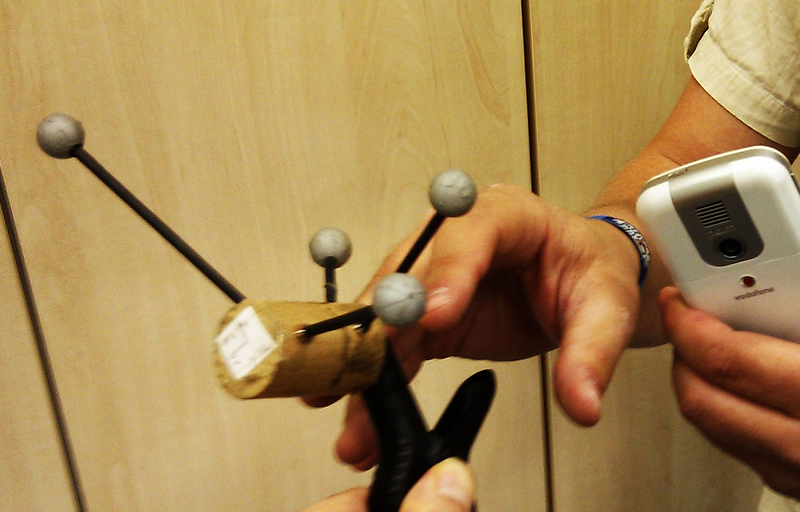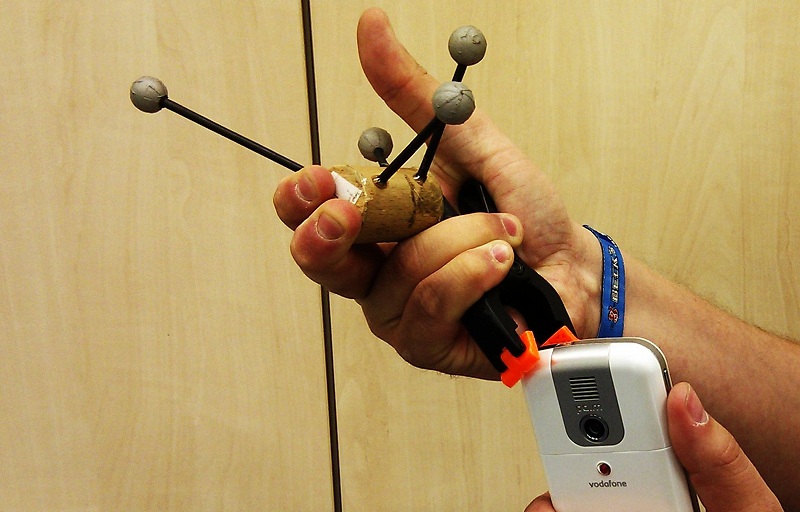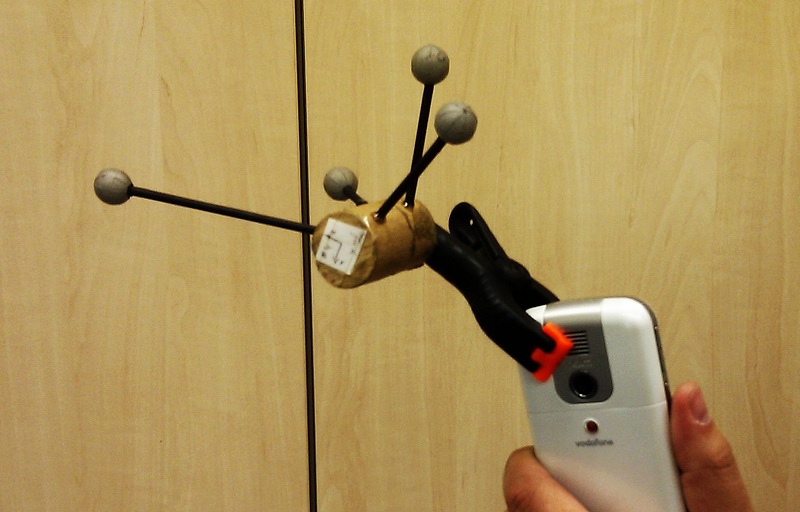Auto-Calibration of Spatial Sensor Information
Motivation
Recently several AR (or AR like) applications have been developed on mobile devices, especially smart phones. These applications make use of the various sensor modalities like GPS, compass, Inertial sensors and accelerometers which are integrated in the mobile hardware. Although the amount of sensors seems promising for this day AR applications these systems still lack from missing data in certain situations. In general these devices have no or unreliable position information when inside buildings. In an Ubiquitous AR environment these device could make use of sensors distributed in the environment. In order to use the pose measurement system of a building a person would have to attach some kind of sensor to his device and could then use further on the corresponding position data for AR applications on his smart phone. The user has to perform a simple calibration in order to link the phone to the sensor, borrowed from the infrastructure. This calibration should be estimated in an autonomous way as far as possible.
Please see the images for illustration of the process:
 |  |  |
| Handover | Clipping | Calibration and further usage |
Task
The student working on this project should develop such an autonomous calibration procedure as described in the prior paragraph. It is the student's task to build a client-server architecture where devices (e.g. a laptop) can request 6D pose data after the corresponding sensor has been attached to the user's device. Of course the sensor has to be registered to the device such that the received pose data is being transformed to the correct coordinate system, which is the main aspect of this thesis.
Requirements
- You should be motivated in working with hardware (e.g. inertial sensor)
- Knowledge of C++ is obligatory.
- Knowledge of Adobe flash or JavaFX is auxiliary.
Contact
If you are interested in this topic please contact
Christian Waechter.


